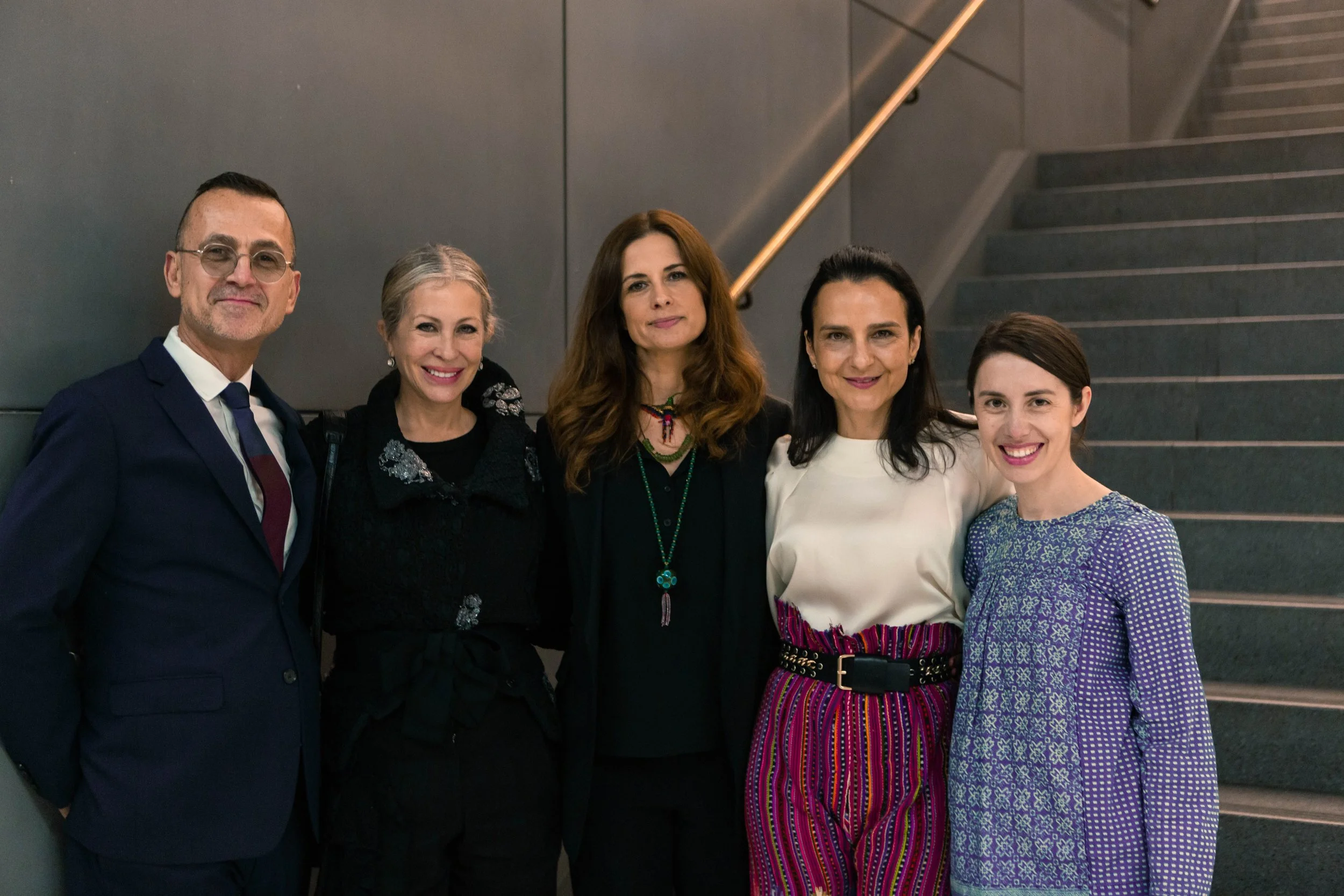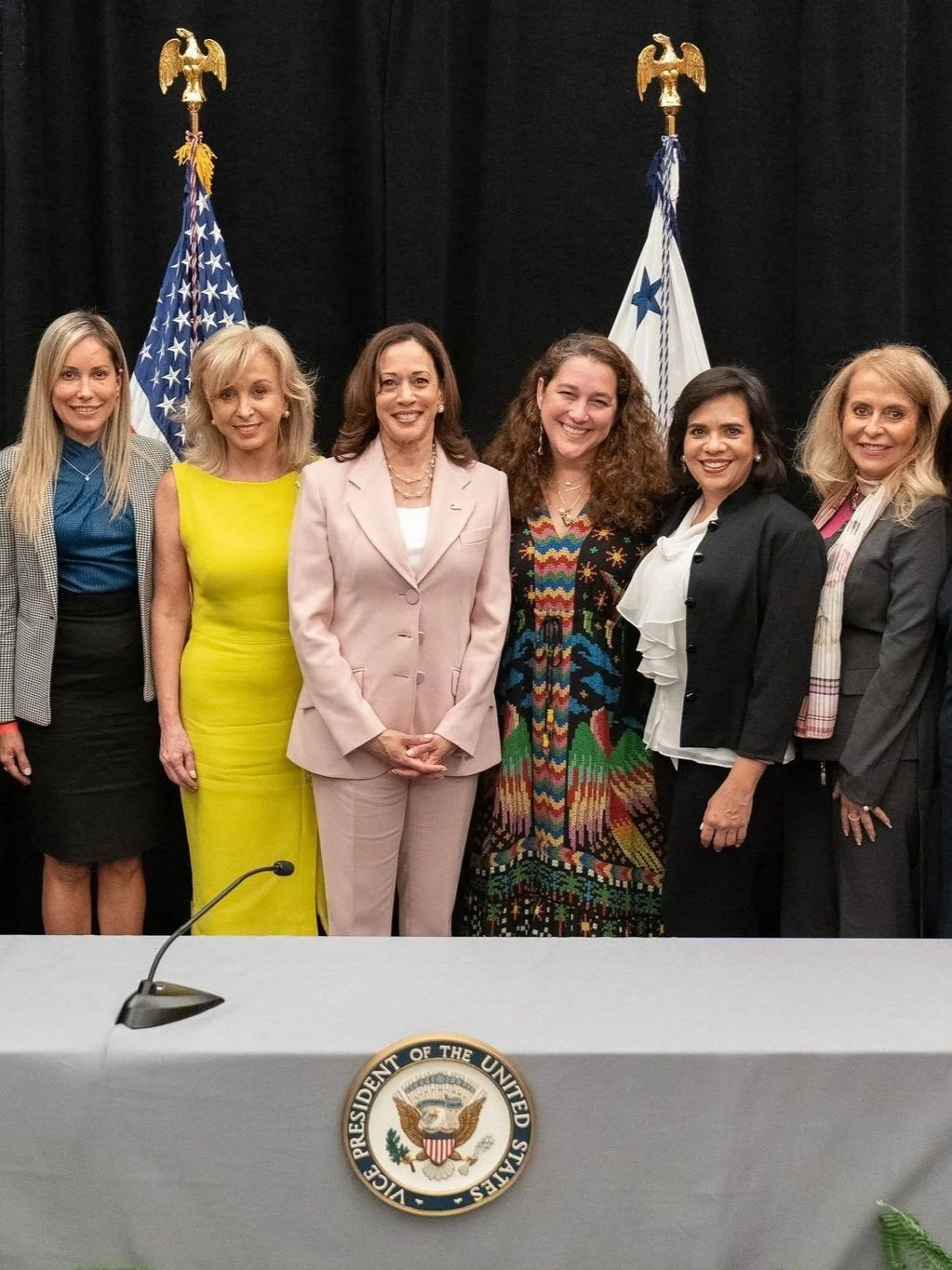L-R: CFDA President Steven Kolb, Carmen, EcoAge founder Livia Firth, Pacunam President Marianne Hernandez and NEST’s Rebecca Van Bergen.
‘If its not inclusive, it’s not sustainable.’ This is the philosophy behind the CoutureLab Coalition, founded two years ago by Carmen, Livia Firth and Donna Karan. The three entrepreneurs wanted to help start a sustainable dialogue in different countries across the globe, and build on the work championed by Carmen’s CoutureLab, empowering artisans, entrepreneurs and emerging design talent and showcasing the individuals and their work, culture and craftsmanship to a worldwide audience. And as part of their mission, a formative film has been produced, which premiered at a special screening in New York last week.
EcoAge’s Livia Firth directed the film.
Directed by Livia, the documentary short titled ‘Fashionscapes: Artisan Guatemaya’ was shown on 1st May in honor of Labor Day, to highlight the need for artisans to take their rightful place in the fashion industry. Carmen, Livia and Donna hosted the screening, alongside Steven Kolb, President and CEO of the Council of Fashion Designers of America (CFDA), Pacunam President Marianne Hernandez, and President of NEST, Rebecca Van Bergen. It was held in front of an audience at Parsons School of Design, and was followed by a panel discussion and Q&A on the artisan economy.
The event was staged in the Starr Foundation Hall at Parsons School of Design.
Borne out of a recent fact-finding trip to Guatemala, and the country’s largest conference for artisan producers hosted by Pacunam, The Foundation for Maya Cultural and Natural Heritage, the project was conceived in order to establish new routes to market and better visibility for the country’s one million artisan producers. “For too long the very talented artisans of Guatemala have been shut out of the fashion value chain,” said Steven Kolb. “It is imperative that the wider fashion community steps up to support and protect this most precious part of our global fashion heritage and skill base. Otherwise, it will be lost.”
Carmen adds her voice to the impassioned panel discussion.
Indeed, research shows that unlocking this potential could deliver a windfall, with Research and Markets putting the global handicrafts market at US $526.5 billion in 2017 and projecting that it will attain $984.8 billion by 2023, expanding at a compound annual growth rate (CAGR) of more than 11% during 2018-2023. However, the drive behind the initiative isn’t just a question of economics, but of equality. As Livia explained, “We know that craft-based work is an enormous driver of women’s employment, serving as the second largest employer of women in developing economies after agriculture, and we have to think of the context”. She also drew the audience’s attention to the fact that studies on climate change in Central America show that before the end of the century, extreme weather, including drought, will have a severe effect on small scale farming, and thus the importance of giving the artisans true access to market as these trades become lifelines.
Marianne, Livia and Carmen with actress and model Calu Rivero and actor and director Michele Bevilacqua.
On the issue of sustainability, Carmen explained how the tried and tested means of production evolved by the artisans featured in Fashionscapes give the opportunity for the fashion industry to learn important lessons about sustainable and authentic production. “We must unlock the power of the artisan,” she said.
Watch the full 15 minute film here…
Home Page Image: The Travelista
















